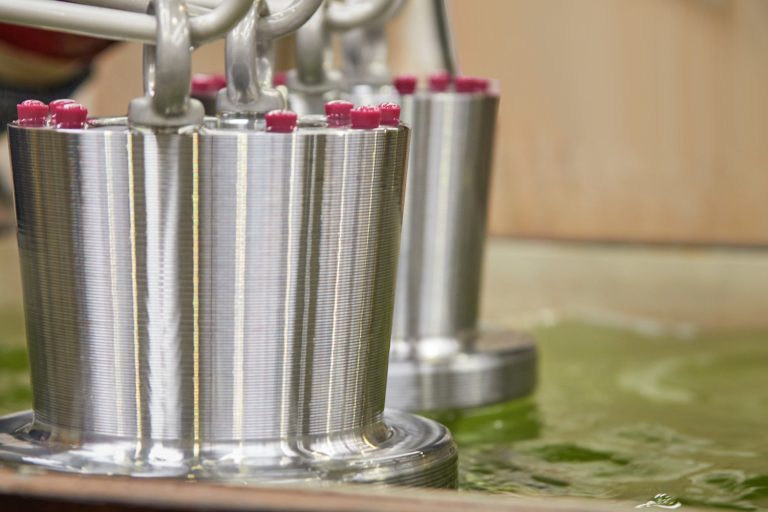
Hard Chrome Plating has been a favourite in electroplating for years. But times have changed, and now many manufacturing organisations are feeling the pressure to search for an alternative, with increased concerns regarding the safety and environmental impacts of Hard Chrome.
Electroless Nickel Plating (ENP) could be the perfect replacement for Hard Chrome, with its excellent corrosion resistance and cost-effective pricing.
To help you find the most suitable option here is our comparison of hard chrome and Electroless Nickel Plating:
Electroless nickel plating is far superior to hard chrome when it comes to corrosion resistance. ENP has been (and continues to be) successfully applied to many things for its anti-corrosive properties, from statues and sculptures to Formula 1 brake parts and aircraft parts all the way to the end fittings on flexible pipes that carry oil in a subsea environment!
These end fittings have the “gold standard” that is Diffused Nickel Plating applied, this is ENP plating that is subjected to a complex and tightly controlled heat treatment process after application, during which some of the coating actually diffuses in to the substrate to create a corrosion resistant barrier offering a service life of 25 years plus subsea! This makes electroless nickel plating far superior to hard chrome when it comes to corrosion resistance.
Electroless Nickel Plating is an autocatalytic process, the coating is very uniform and does not suffer from “build up” of plating on corners, unlike Electrolytic plating that uses electric current and anodes. The electroless Nickel coating will form evenly on parts of more complex geometry than most other coatings would. Essentially, if the ENP solution is in contact with the substrate surface an even coating will form.
It can be applied to a multitude of substrates, steel, stainless steel alloys, aluminium alloys, copper, brass, and other more “exotic” metals.
Electroless Nickel Plating exceeds hard chrome on versality, working well on a variety of substrate materials and applying a smooth finish every time.
Due in part to both it’s hardness and it’s natural lubricity ENP has great wear resistant qualities and is often used to re-furbish worn machine parts and blades that are subjected to long periods of mechanical wear. This quality can in some applications be further bolstered by the use of a composite coating known as Nickel PTFE, this is a solution that alongside nickel also contains nano-particles of PTFE which are co-deposited on the substrate.
Hardness:
With an “as plated” hardness of 450-550 Hv (depending on Phosphorous content) ENP is already fairly hard, however with a specific heat treatment a hardness upwards of 900 Hv can be achieved which is comparable to that of hard chrome.
Hard Chrome has long been the leading coating for manufacturers, but with concerns over health & safety and environmental impacts, Electroless Nickel Plating could be its natural successor.
If you are looking for an alternative for Hard Chrome, we would point you in the direction of Electroless Nickel Plating. It is highly cost effective and you will benefit from a cost saving too. If Hard Chrome is not for you, or you are looking to be more environmentally friendly Electroless Nickel Plating just might be!
Electroless Nickel Plating with a particular heat treatment a hardness upwards of 900 Hv can be achieved making it a viable replacement for hard chrome.
When it comes to corrosion resistance ENP when diffused can offer 25+ years use in a subsea environment.
Couple this with its natural lubricity, which is exceptional when the composite coating Nickel-PTFE is used it has great anti-galling properties too.
We provide unmatched production capacity and turnaround times.
We have an extensive range of highly equipped in-house inspection and testing facilities.
We are introducing automated processes to our capabilities creating industry leading efficiencies.
We offer technical consultancy to develop and deliver exact procedures to meet your specific requirements
We have some of the largest plating tanks in Europe.